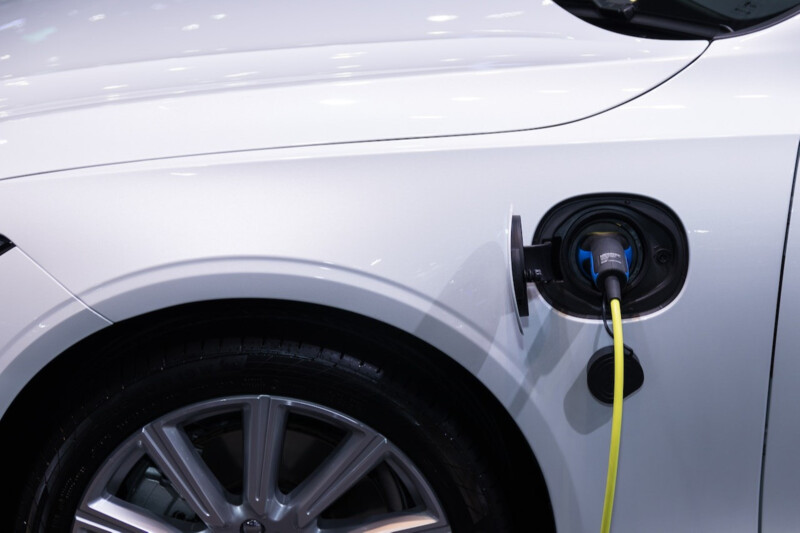When a company's activities require the use of one or more vehicles, it's natural to consider the costs involved: purchase price, insurance, maintenance... To optimize the cost of your vehicle fleet, you can take advantage of a number of financial incentives. Ecological bonus, TVS exemption, depreciation... What about the switch to "clean" vehicles, for which incentives are growing? Do electric cars offer tax advantages for companies? Here are some answers.

Provision of an electric vehicle: a case of benefit in kind
The benefit in kind consists in providing the employee with a company vehicle, which he or she uses for both business and personal travel. The benefit in kind results from the private use made of the vehicle. This arrangement is subject to assessment by the employer on a flat-rate monthly basis, or on the basis of actual expenses incurred.
The elements included in the calculation for assessing the benefit in kind include: the overall cost for vehicles leased with or without an option to purchase (rental, insurance, maintenance, kilometers driven for business and private purposes), or the purchase price for vehicles acquired by the company (including the cost of the battery for electric cars). A 50% allowance is then applied, with an annual ceiling of €1,800.
Please note: the cost of electricity paid by the employer is not included in the calculation of benefits in kind. However, a tax deduction is possible on the VAT relating to the electricity used to recharge the car. For the time being, these arrangements apply to vehicles made available between the beginning of 2020 and the end of 2022.
Exemption from company vehicle tax (TVS) for electric cars
TVS, which was abolished on January 1, 2022, concerned passenger transport vehicles owned by any profit-making company based in France, whether used by the manager, employees or for rental purposes.
Company car tax has been replaced by two new taxes. One based on CO2 emissions and the other on the age of the vehicle. The use of an electric vehicle fleet allows exemption from these taxes. In fact, vehicles with CO2 emissions of less than 50 g/km are not subject to this contribution. Depending on the region, this scheme may be accompanied by a 50% or 100% exemption on vehicle registration fees.
Separate depreciation of electric vehicle and battery
When it comes tobusiness investments, book depreciation allows you to spread the costs incurred over the useful life of the asset. The tax authorities determine the depreciation period for fixed assets on the basis of the nature of the asset and its loss of value. Vehicles can be depreciated over 5 years, regardless of the energy used.
Buying an electric model offers a number of financial advantages over other types of vehicle:
- The ceiling is higher for the depreciation of an electric vehicle (around €30,000 compared with €18,300 or €20,300 for other energies, depending on their emission rate).
- Thepurchase price of the vehicle and the battery can beamortized separately.
The battery can be fully depreciated, with no upper limit, on the express condition that it appears on a separate line of the vehicle purchase invoice or on a separate invoice.
Ecological bonus for electric and plug-in hybrid vehicles
The ecological bonus acts as a government incentive to encourage the purchase or leasing of low CO2 emission vehicles. It applies to the purchase of new or used electric, hydrogen or rechargeable hybrid vehicles.
The ecological bonus for companies purchasing an electric vehicle depends on its price. The amounts granted have been readjusted as of July 1, 2022, capping at €1,000 for electric vans and vehicles with a purchase value of between €45,000 and €65,000. Individuals purchasing an electric model worth less than €45,000 will benefit from an ecological bonus equal to 27% of the price, with a ceiling of €5,000. The threshold is lowered to €3,000 for legal entities.
Please note: in the case of electric vehicle battery leasing, the maximum upgrade is €3,000.
Conversion bonus for company vehicles
Alongside the ecological bonus, the conversion bonus enables professionals to receive financial compensation when the company disposes of a polluting vehicle. This includes :
- Gasoline-powered vehicles put on the road before 2006
- Pre-2011 diesel cars
Companies that dispose of these "Crit'Air 3" vehicles in order to buy an electric vehicle are awarded a conversion premium ranging from €1,500 to €9,000, depending on the weight of the commercial vehicle.
